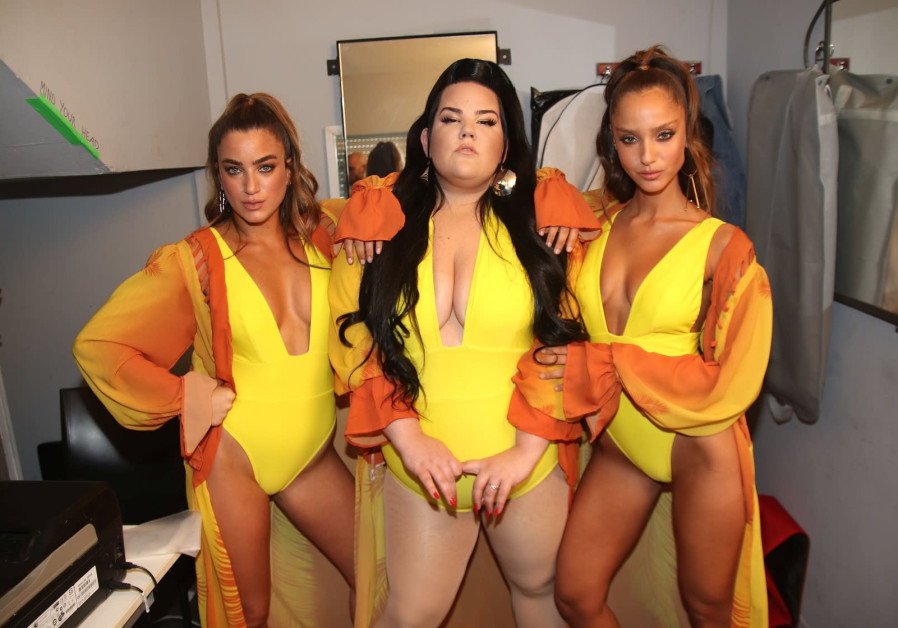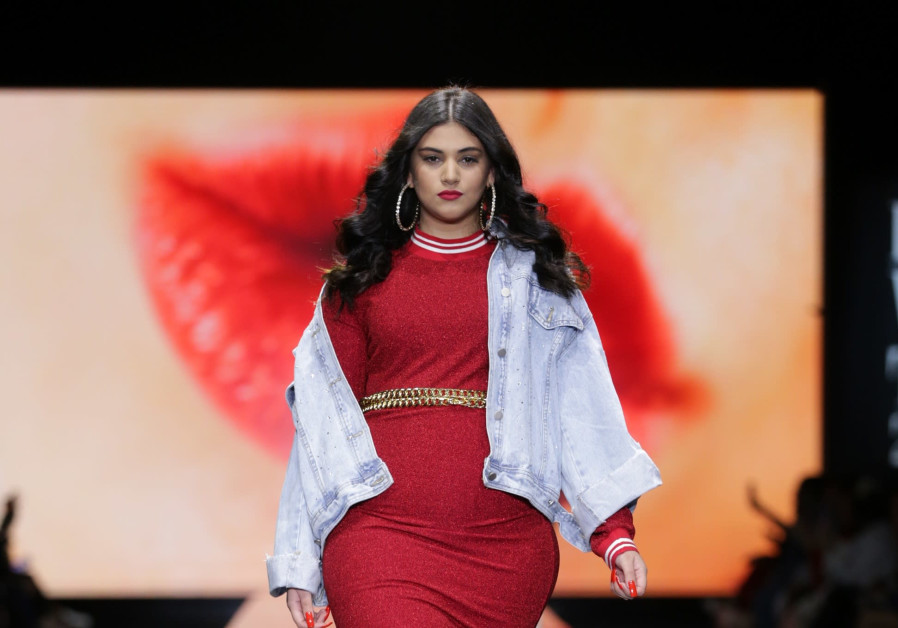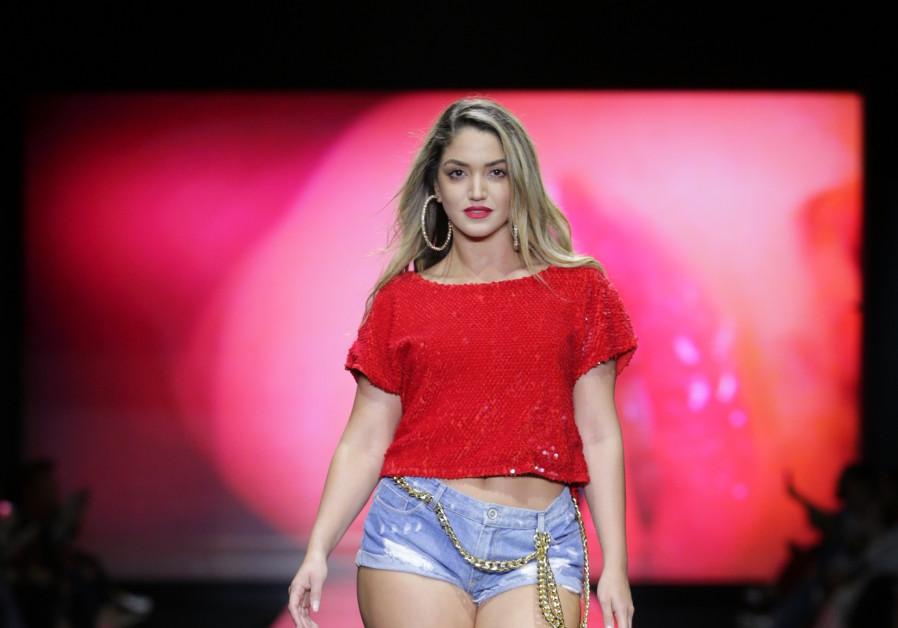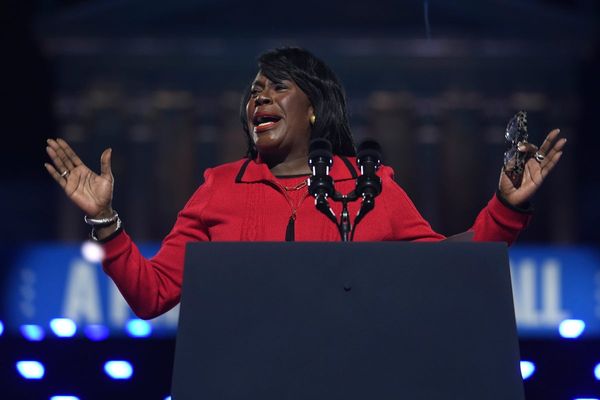
Amid the glitz, glamour and grace of Tel Aviv Fashion Week this year there was a small glimmer of change.
For the first time in the history of Fashion Week, a brand of plus-size clothing held a runway show. Retema, the burgeoning label from 26-year-old Rotem Levitan, on Wednesday held the first-ever plus-size show in Tel Aviv Fashion Week’s seven-year history. And a day earlier, Eurovision winner Netta Barzilai created significant buzz when she donned a bathing suit to walk during the Bananhot runway show.
“For years I would sit on the side when my friends swam in the water,” Barzilai said backstage after the show. “There is no feeling worse than that, to be afraid of what people will say about you, or to be embarrassed by who you are and what you are. I’m proud to do this today... I’m really proud to be a part of this. Don’t be embarrassed, be yourselves.”
Barzilai’s turn on the runway won her praise for bravery and courage, but also garnered rude, nasty and offensive comments on social media about her size and shape. And some of the criticism of the Eurovision winner came from an unexpected place: the body-positive plus-size community in Israel.
“This was a PR move that exposed them to hundreds of thousands of new potential customers, including fat women who are sure their size will be in the store – but it’s a lie,” wrote fashion blogger, model and body-positive activist Zohar Vasilevitsky on Instagram. “They’re using us – fat women – for their PR spin, again.”
Vasilevitsky said it was moving to see Barzilai take the stage, “But it’s wrong, sad and upsetting that this PR move is light years away from the reality in which in the year 2019, a woman who is Netta’s size has nowhere to buy a bathing suit.”
Barzilai responded to Vasilevitsky’s criticism by writing: “Slowly, slowly; I’m looking out for us, darling.”
The day after Barzilai’s turn on the runway, the bathing suit she wore was available on the Bananhot website in sizes XL, XXL and XXXL. But many say that simply wasn’t enough.
“There was no effort made, there were spelling errors, they just took photos behind the scenes of the fashion show instead of a real photo shoot like the other bathing suits on the site,” said Judy Abramson, a US-born student, freelance model and body-positivity activist. “There was no effort put into it, and that was the only bathing suit you can find up to an XXL. A lot of the plus-size community here felt that it was very hypocritical.”
Every other bathing suit on the Bananhot website goes up to a size large, which Abramson said is in reality more like a medium in the United States. While Barzilai was not the only plus-size woman to walk in the Bananhot runway show, none of the other designs that were modeled are sold above a size large. Bananhot said last week it is producing a new line of bathing suits with Barzilai, but did not give a timeline for their sale.
AT THE initiative of Motty Reif, the producer behind Tel Aviv Fashion Week, several other shows also included plus-size models on the runway. But that doesn’t mean the brands offer clothing in larger sizes on their websites, making it all the more disappointing for plus-size fashion aficionados. That includes model Nataly Dadon’s swimwear line, Rinikini – which also only sells styles in small, medium and large – and Biliblond, which has some styles in a size XL, which the company corresponds to a size 42.
In some respects, Israel has made significant strides, by Western standards, in addressing unrealistic beauty norms. In 2012, the Knesset passed a law banning the use of models with a body mass index, or BMI, below 18.5, and requiring advertisers to state if models’ pictures have been digitally altered. At the time Israel was the first country in the world to pass such a law, though many in the fashion industry said it has never been enforced.
Regardless, fashion-forward Israeli women have long had a hard time finding styles that showcase instead of conceal their bodies.
“Besides for maybe two designers, the options here are mostly very baggy and very unflattering,” said Abramson. “For years there was the view that people above a certain size all had one body type.” In the average store, she said, you can’t find anything over a size 42, which is a 10/12 in the US. During the more than seven years Abramson has lived in Israel, she said, there has been “absolutely no” progress in the mainstream plus-size fashion world.
Retema, which sells sizes from 42-50, opened last year, and is considered groundbreaking in the Israeli fashion industry.
“Retema believes in the new femininity – strong and diverse – which inspired the phrase ‘fem-bold,’ one of the leading values of the brand,” the company said in a statement last week. “Retema believes that all of us deserve equal fashion rights, and all of us deserve to dress beautifully and fell perfect.”
Even with the newest addition, fashion-forward plus-size women in Israel have limited options.
“For years I would buy my clothes on ASOS or abroad,” said Abramson. When she lost some weight recently, she said it became easier to find clothes, “But I still can’t go to all stores.”
The rise to prominence of Barzilai, who has always been adventurous with her fashion choices, has provided a touch of hope for those looking for fashionable choices in larger sizes. In her appearances on Hakochav Haba last year, Barzilai wore some designs by Retema, and others that were handmade just for her – a testament to the limited options for women of her size in Israel.
In an interview earlier this year, Barzilai revealed that she turned down an offer to become the face of a brand that didn’t sell clothing in her size. So many activists in the body positive community are hoping the singer’s partnership with Bananhot is more than just a fig leaf.
“I’d like to be hopeful and think that she can bring real change,” said Abramson. “I think that she has opened a lot of people’s minds.”









